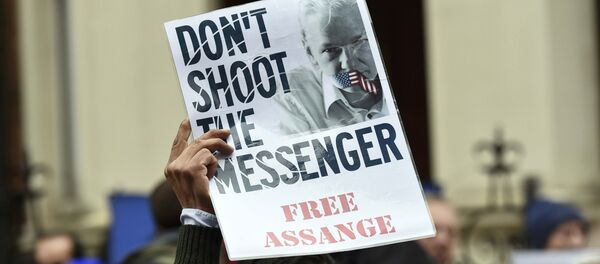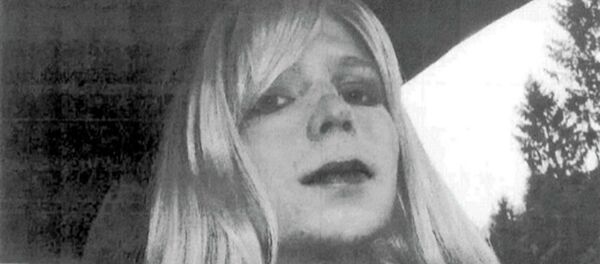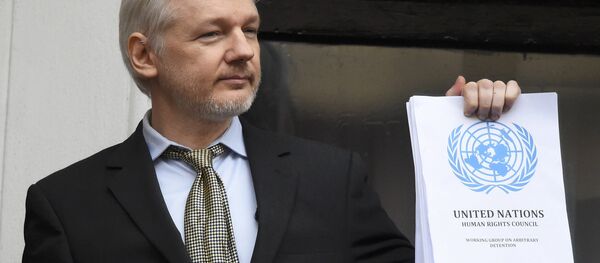In the tweet, WikiLeaks included a letter from their lawyer addressed to US Attorney General Loretta Lynch, detailing why the “Clinton precedent” requires closing the Department of Justice (DOJ) case against the publisher.
“If Obama grants Manning clemency, Assange will agree to US prison in exchange — despite its clear unlawfulness,” the proposal read, linking to a previous tweet containing the letter.
— WikiLeaks (@wikileaks) September 15, 2016
The letter, from WikiLeaks attorney Barry Pollack, explained that on November 29, 2010, the DOJ announced an investigation into potential crimes committed by Assange and WikiLeaks, and that in March of this year it was confirmed that the investigation “continues to this day.”
— WikiLeaks (@wikileaks) August 16, 2016
The investigation stems from the thousands of classified Army documents provided by Manning to the website, including diplomatic cables and airstrike videos, which later became known as the Afghan War Diaries. Manning is currently serving a 35-year prison sentence at Fort Leavenworth for revealing the extent of the US military’s criminal actions.
“As Mr. Assange’s criminal defense counsel in the United States, I have repeatedly sought information from the Department of Justice regarding this now nearly-six-year-old investigation,” Pollack writes. “Despite the fact that the Department has continually publicly confirmed through court filings and statements to the press that it is conducting an on-going criminal investigation of Mr. Assange, the Department has provided me no substantive information whatsoever about the status of the investigation.”
The first development points to the Attorney General’s revision of the DOJ regulations with respect to obtaining evidence from and charging members of the press in January 2015.
“The Department’s policy is intended to provide protection to members of the news media from certain law enforcement tools, whether criminal or civil, that might unreasonably impair newsgathering,” the policy revision reads.
“No member of the Department shall present information to a grand jury seeking a bill of indictment, or file an information, against a member of the news media for any offense which he or she is suspected of having committed in the course of, or arising out of, newsgathering activities without first providing notice to the Director of the Office of Public Affairs and obtaining express authorization of the Attorney General,” it states.
Pollack argues that the investigation against Assange is clearly based on his newsgathering activities, and that WikiLeaks had published the information because they believed it was newsworthy. The lawyer argues that the extensive coverage of the published documents by third party media outlets affirms the assertion of newsworthiness.
The second development indicates that the investigation should be dropped due to a lack of charges against Democratic presidential nominee Hillary Clinton. He notes that FBI Director James Comey based his recommendation of no charges for Clinton on his belief that there was no criminal intent.
“In his statement, and in subsequent testimony before Congress, Director Comey made it clear his conclusion was based on the necessity of proving criminal intent. Director Comey noted that responsible prosecutors consider the context of a person’s actions,” Pollack wrote. “Criminal prosecution is appropriate only when a person was knowingly violating the law and was intending to aid enemies of the United States or was attempting to obstruct justice.”
"Manning disclosed the materials because, under the circumstances, she thought it was the right thing to do," Manning's attorneys state, in an appeal brief filed in May. "She believed the public had a right to know about the toll of the wars in Iraq and Afghanistan, the loss of life, and the extent to which the government sought to hide embarrassing information of its wrongdoing."
Many have long believed that Manning’s disclosures contributed significantly to bringing about an official end to the war in Iraq.
Assange has been residing in the Ecuadorian Embassy in London out of fear of prosecution by the US government since 2012.
In February, the UN Working Group on Arbitrary Detention (WGAD), ruled that Assange's four-year stay in the embassy was considered “arbitrary detention,” as he had not been allowed to leave the building without the threat of arrest.
"For six years now, his rights have been severely violated, as have the rights of his children. WikiLeaks began its publication of US diplomatic cables on November 29, 2010, a week before Sweden and the UK arbitrarily imprisoned him,” Assange's legal representatives said in a statement in August.
Assange has not been formally charged with any crime.
In prison, Manning has just ended a hunger strike, after the Army finally agreed to allow her to receive gender-transition surgery.
Following Manning’s sentencing, it was announced that she would like to transition to a woman, but the prison initially refused gender-affirming treatment.
The lack of proper care culminated in a suicide attempt, after which she is now potentially facing further charges. If charged, she could be sentenced to finish her lengthy sentence in solitary confinement, or be reclassified to maximum security.
“It is unnecessarily cruel to threaten Chelsea with additional punishment while in this very vulnerable state,” a petition against the charges states. “The government is trying to silence her important voice––for good. Chelsea has been systematically mistreated by the US government since she was first taken into custody in 2010, including long stretches of extreme solitary confinement even before she had ever been convicted.”




